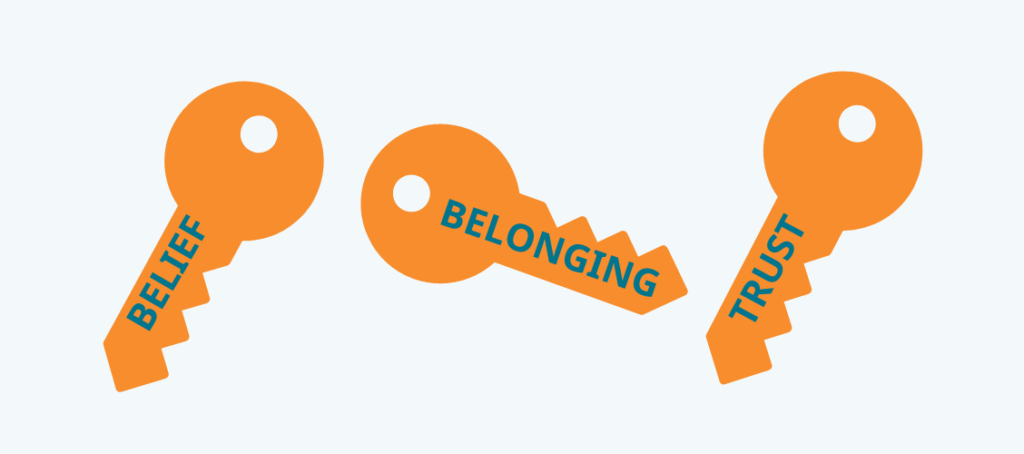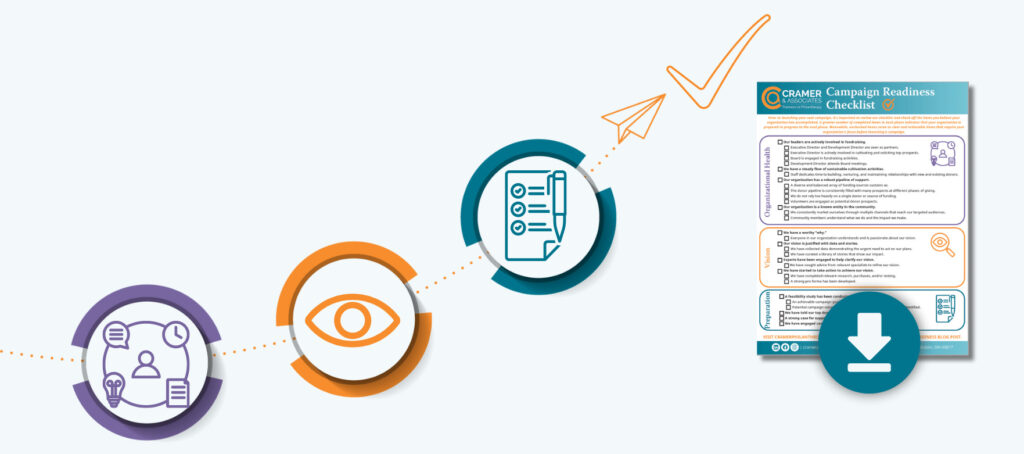How should your organization prepare for the challenges ahead?
Recession. These days, you can’t pick up a newspaper or turn on a TV without hearing about it. This word conjures anxiety, fear, and horrible memories of economic downturns and crises past. At Cramer & Associates, we’ve been thinking a lot about the 2008 recession, the COVID-19 pandemic, and the lessons they taught us about how to cope when times are hard.
Disruption creates stress. But you can leverage disruption to strengthen your organization. It just takes planning and preparation.
So how do you prepare for a recession? Here are some suggestions from our team.
Diversify Revenue Streams and Look Beyond Cash Donations
In a recession, typical sources of revenue can diminish. Foundations’ assets may take a hit, leading to decreased grantmaking. Government funding may dry up. Struggling corporations have less money to give. And individuals and households will likely temper their giving until the economy rebounds.
If your budget relies heavily on one of these sources, it’s time to cultivate support from the others. As you do so, think beyond cash donations. Resources and skills can help sustain your organization too. Maybe a local business can offer you an in-kind donation of goods or a venue for your next event. A Foundation that has supported you in the past might be able to connect you to people with an affinity for your cause. Or perhaps a donor with marketing expertise can help you drum up community awareness through a social media campaign. Think creatively and open yourself to new possibilities.
Develop Contingency Plans
Having a plan in place can make recession less disastrous. If you develop contingencies now, you won’t be stuck making decisions in the middle of a crisis when stress can impair your judgement. Develop plans for good-, worse-, and worst-case scenarios that you can put into place quickly and effectively. What will you do if your social enterprise can no longer generate earned revenue? What if the demand for your organization’s services increases as the economy weakens? Be prepared to answer these kinds of tough questions.
As you develop these plans, and as the market fluctuates, communicate regularly with your board and paint a realistic picture of the challenges ahead. The trusted leaders around you can help. Show them how you are planning and preparing for lean times and ask for their advice and support. They will appreciate your forethought and your honesty.
Trust Your Team
Since the pandemic, employers have become more aware of burnout and the danger it poses to employee retention. During a crisis, there is a greater potential for burnout. Even your most motivated, mission-driven team members may find themselves running on fumes. Anxiety in their personal and professional lives can bring them to the breaking point.
It will be easier for your team to get through the challenges ahead if you play to their strengths. Here at Cramer, we are huge fans of the Working Genius model from Patrick Lencioni and the Table Group. This model preaches that everyone has natural gifts when it comes to work, and when you utilize those gifts they give you energy and create a positive work experience. Team members who are consistently using their gifts will be less susceptible to burnout. As you create plans to weather the recession, put people in charge of projects and tasks that give them joy. Your team and your organization will be stronger for it.
Your team will also find it easier to cope if your keep lines of communication open. When emotions run high, people who don’t have accurate information will rely on rumors and gossip. Just as you need to communicate with your board, you should meet regularly with your whole staff to keep them informed of changes. If you speak directly with them, you will ease their anxiety.
Leverage Your Assets in New Ways
Nonprofit organizations have all kinds of assets. They include lines of credit, real estate, and vehicles. And assets can be intangible too! Your reputation and your relationships with people, businesses, and public officials can all be leveraged to sustain your mission.
Conduct an audit of your assets to account for all the resources at your fingertips. Then brainstorm how you can best use them to keep operations afloat. Review your organization’s policies for dipping into a rainy-day fund. Talk to your banker about taking a draw on your line of credit. If necessary, think about what assets you might liquidate to maintain your programs. And beyond the financial concerns, talk to leaders in your network about how you might pool or share resources to help each other. By working together, you can cut some costs and find creative solutions.
Support Your Donors, Staff, and Those You Serve
Recession will affect everyone differently. Your donors, your staff, and the people you serve might need some grace as they ride out the downturn. Consider how you can help them by demonstrating empathy.
Perhaps you can make your service policies flexible until conditions improve. For example, a college or university administration might allow students to take time off and graduate later, so they don’t have to drop out to help support their family. Or a domestic violence shelter might allow a person to extend their stay if they have trouble getting back on their feet.
Donors might find that their financial circumstances have changed. Someone who made a five-year pledge to your last campaign might find they don’t have the resources to fulfill it now. If you work with them to extend their pledge period, you can preserve the relationship and secure their loyalty in the future.
Members of your staff and their families could be hit particularly hard by recession. Solutions like flexible hours and work from home, time off to help relatives, and reduced rates on insurance can ease the strain and keep them onboard so your organization keeps operating smoothly.
The prospect of recession is scary. But you don’t have to face it alone. Lean on your network, colleagues, board, and donors, and you will find possibilities and strength to get through the hard times.
Get in touch with our team today to find out how we can help you prepare for tough times.






